I broke down and touched up the contrast on a few pictures; worth it? Still not sure, but I’m leaning yes.


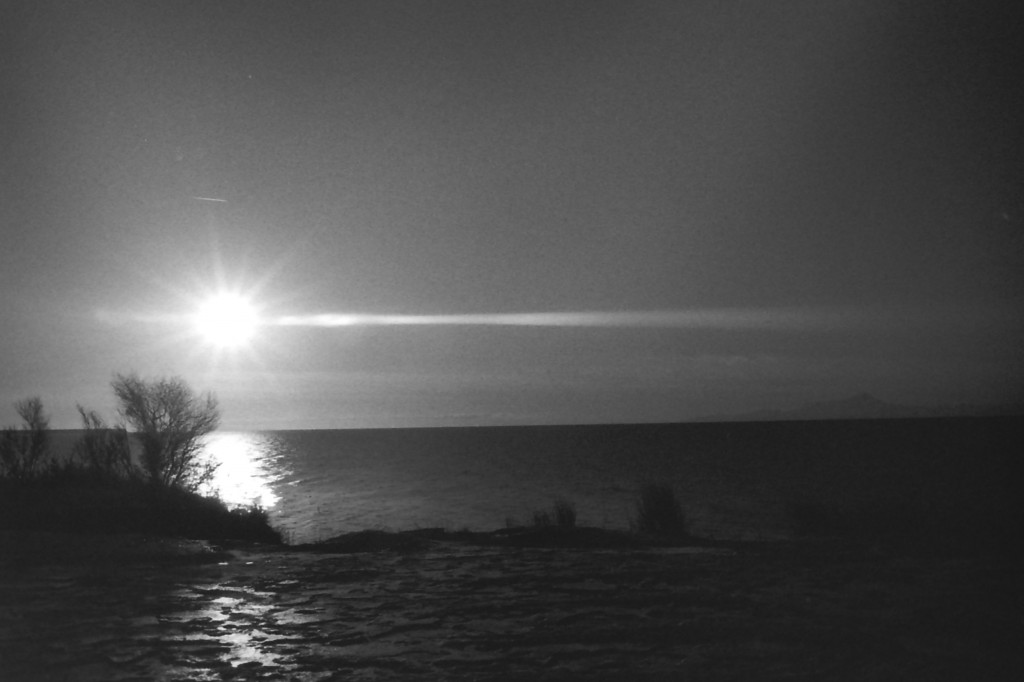
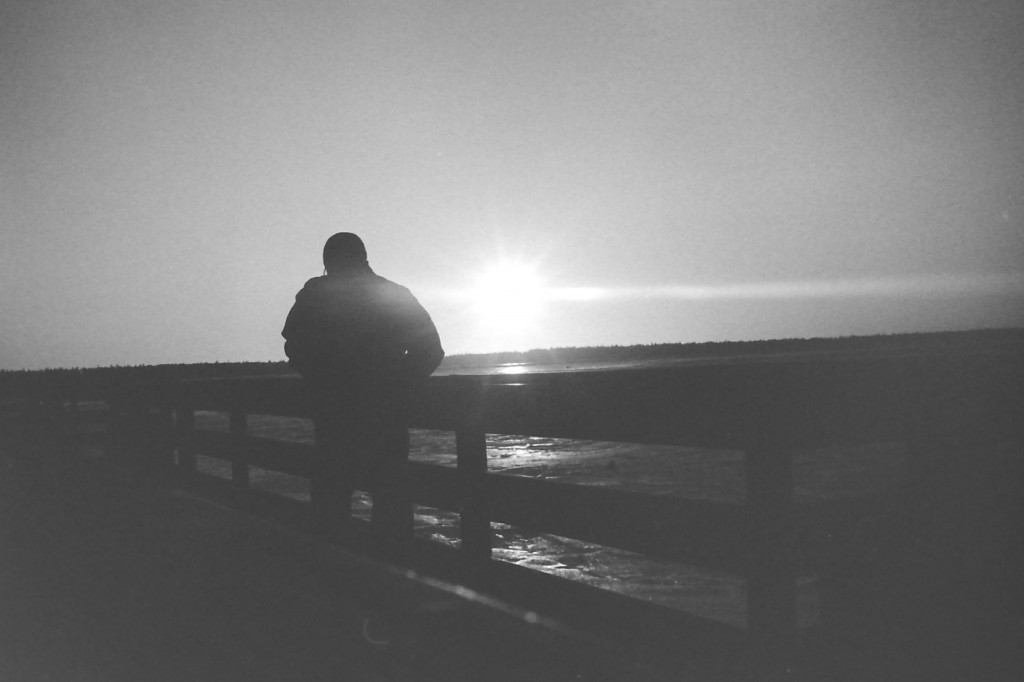
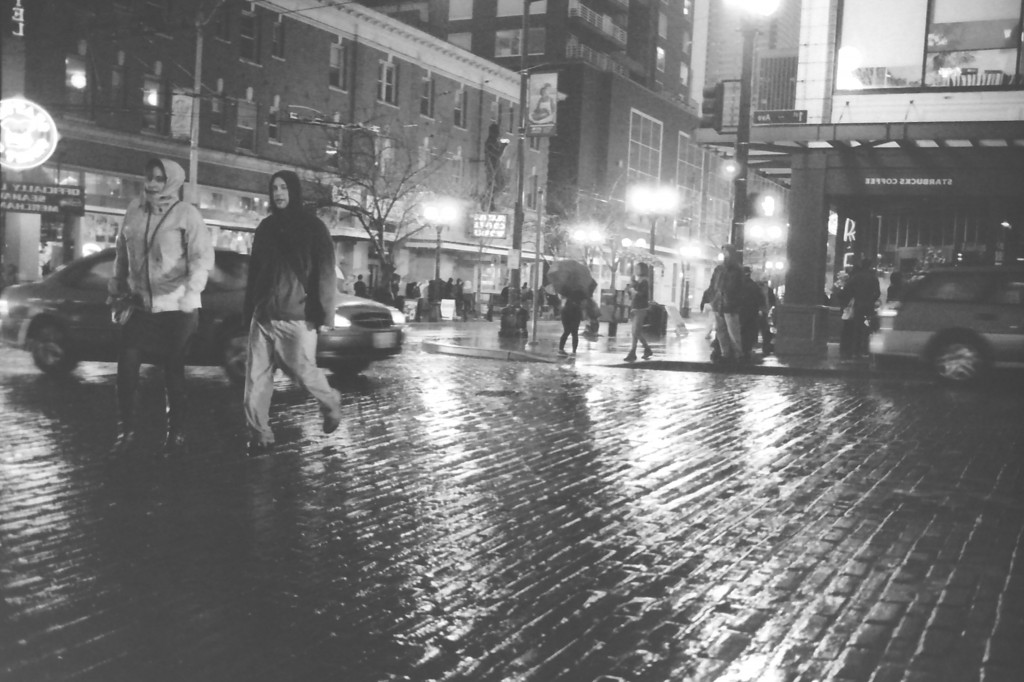
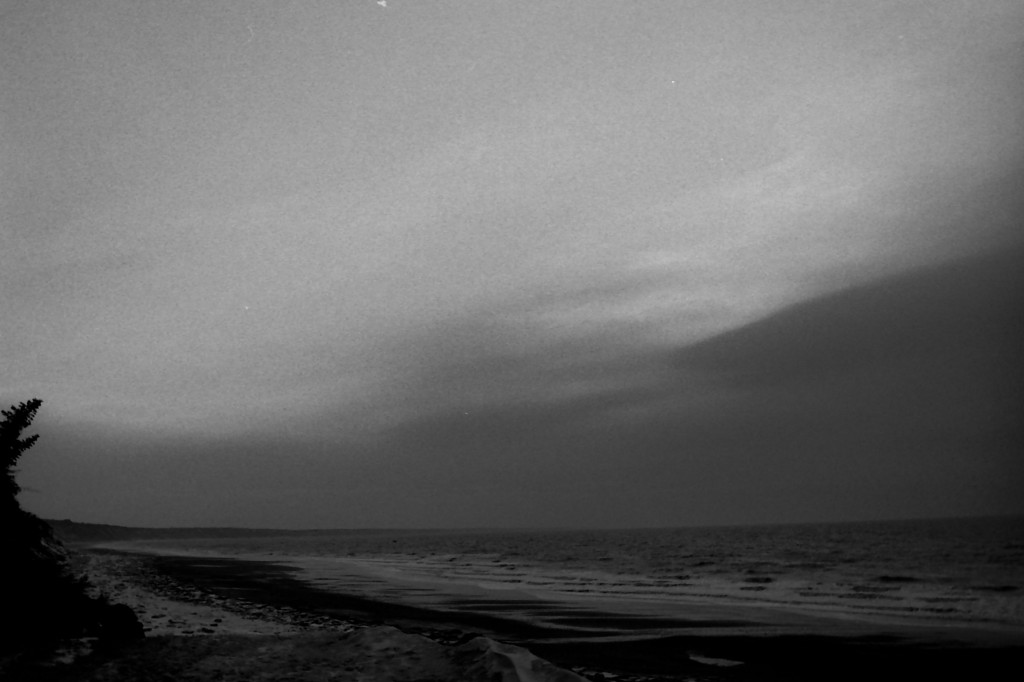
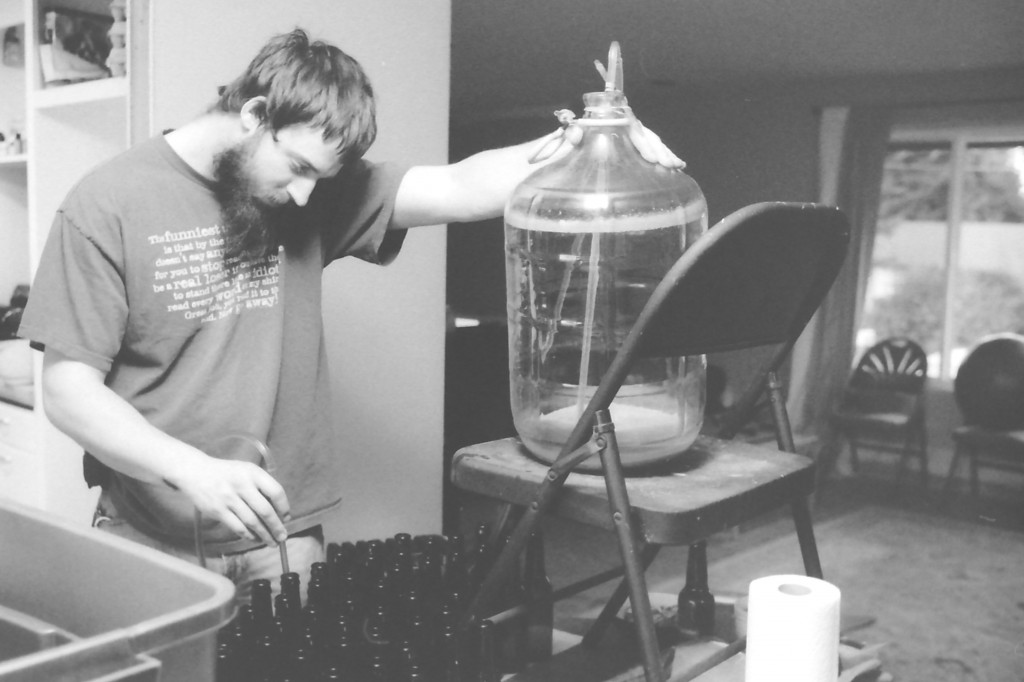
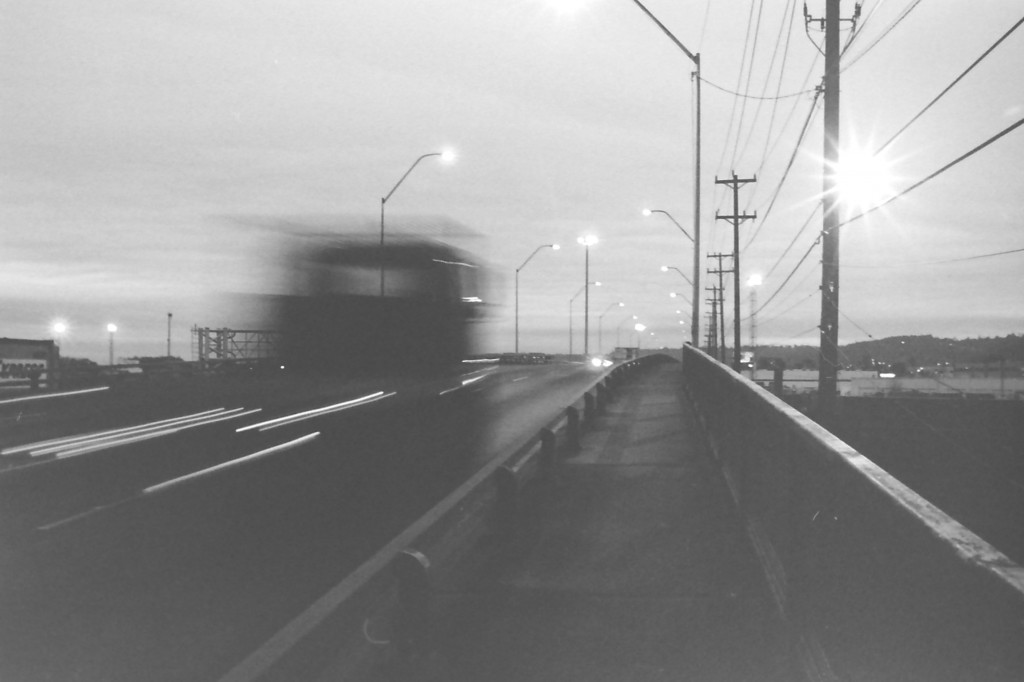
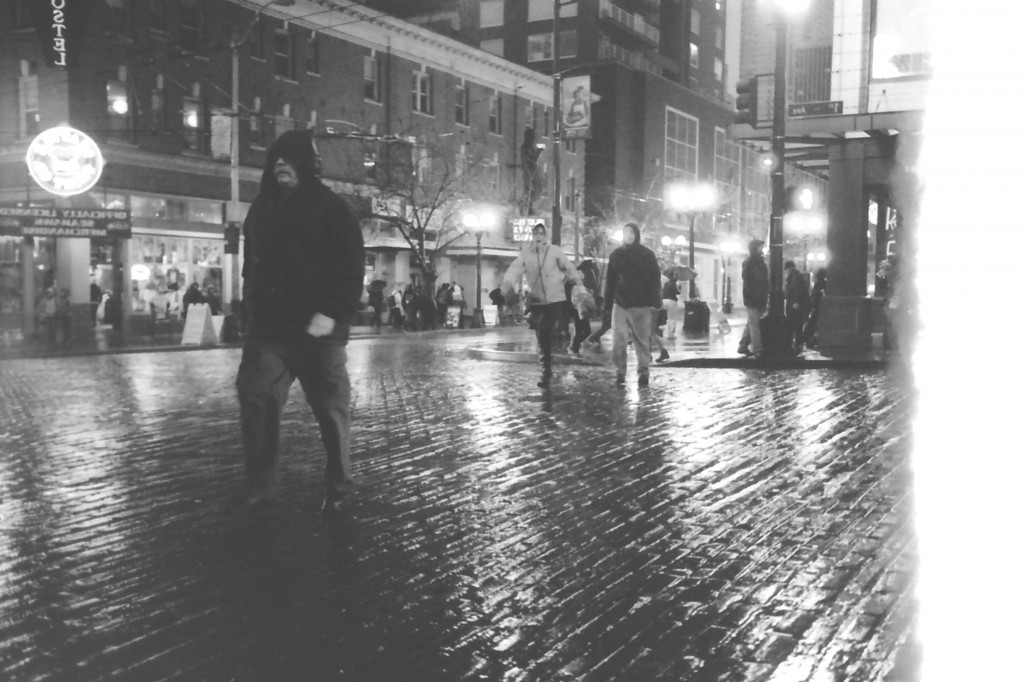
I forgot my developing notebook, so I’ll get the nitty-gritties on the films and developing on here in a few days. Sparse details: Ilford HP5+ and TX400, mostly, pushed to 1600. All run through my F3HP, shot through an e series 35.
On cameras: I’m thinkin’ I may have to abort operation dave-saves-up-for-three-years-and-buys-a-M6/35-setup, and then start a new operation, likely to be titled dave-saves-for-a-year-and-buys-a-X100. Digital? DIGITAL? Well…yeah, I think so. Hmm. But have you SEEN that thing? Seriously, what a neat camera.
First tries: street photography and push processing. Conclusion: I’m in love. With both. Oh but wait you might say, that’s not a good conclusion, dave–it’s a love triangle! You need a last chapter to resolve things! What do? To that I say nothing, only give a clue: I fidget with my shirt sleeve. Like I’m trying to get you to think that I’m trying to get you to think that there’s an ace there; probably no ace there, huh? But oh I may have an ace, yes I may have one where you never thought an ace would be. In my sock.
Anyways, next up: try pushing film that’s actually made to be pushed. I fear that good places for street photography may be hard to find up here–I need to figure something out to deal with this issue. Anchorage, maybe? That’s a long drive to take pictures.
End-note about street photography: man, I took a LOT of shots, and not many of them turned out nice. Like, this: there’s a reason this post only has two pictures. That bugs me. And it set off a little spark. I hate to let something get the best of me, especially an abstract thing like “street photography” (what DOES that mean, anyways?). No good.
Nitty gritty:
Body/lens: F3HP /e-series 35/2.5
1st shot: Ilford HP5+ @ 1600, Ilfosol 3 1+9, 19min, one inversion each minute with three 3min water baths (@6, 11, and 16 min)
2nd shot: Kodak Tri-X 400 @ 1600, Ilfosol 3 1+9, 15min, one inversion each minute with two 3min water baths (@6 and 11min)
So a while back I forayed into film, here: http://wp.me/p14q4r-97. Since then, I have: bought a film SLR, a nice digital SLR and four lenses, and I have sold three lenses and a nice digital SLR.
So now, another first foray: development.
Ok, well sorta the first…maybe actually second. But lets just say these here were my first try, ok? I feel better that way.
For those of us: F3HP, e series 35mm, Kodak 400TX, Ilford chems
Last ado: when I got here I took some color film to the only film-developing guy in town, and the shots came out bluer than a song B.B. King wrote the day his dog died. I took these developed negatives to him for scanning, and half came out like these first five.
I got out of bed at 4:30 to catch a bus to South Seattle in time for the sunrise and Murphy’s law did it’s thing: the morning was fully overcast as daylight came. Mostly undeterred, I shot 22 or so frames of the area. Here are a few I liked.
Nikon F3, Series E 50mm/f1.8, Ilford HP5+. Scans done by Omega Photo, numbered by frame number.







Ilford XP2 Super. I like this film a lot, but it just doesn’t have the nice grain and tone of the HP5+.
All except for the beer-and-chips shot are from a day a few weeks ago when we spent the summer day helping Alicia get started painting her and Jon’s house (while Jon was on a business trip in Alaska–surprise Jon!). Don’t get me wrong, we did stay well nourished and hydrated while painting. A watermelon fight also took place, but I didn’t get any pictures of it; turns out it’s difficult to get good action portraits while dodging flying pieces of watermelon.






Here are some more color shots–same old color film, same real nice slightly reddish vintage tones. I saved one roll of it for a special occasion, and I’m going to buy some film this week to sock away for a few years down the road. Nikon F3, e-series 50mm; no photoshopping or cropping.







Graduation gift-money + selling math textbooks –> new old-camera owner and thank-you notes aplenty, and sad feelings of having betrayed my old standby math book.
I’ll miss you, oh antiquated 3rd edition Taylor and Mann calculus text.
Six important things she does:
1. accept 35mm film
2. aperture priority mode
3. meter light
4. time things (12 seconds, namely)
5. battle-mace duty in case somebody thinks they’d like have her, or other things
6. exposure lock
Six important things she doesn’t do:
1. shutter speed priority mode
2. automatic mode
3. auto focus
4. kill batteries (battery life measured in years of use…let’s see a dSLR do that)
5. exposure bracketing
6. tempt me to ruin moments by snapping off eighteen frames when one is perfect.
“Bess,” maybe?
 (shot with my digital camera. odd)
(shot with my digital camera. odd) After shooting a roll of color film, it seems to me that it’s great for making pretty pictures, but those pretty pictures don’t really say anything. Sorta the idea that Ted Grant gets at about portraits:
“When you photograph people in color, you are photographing their clothes. When you photograph them in B&W, you photograph their souls. ”
Regardless, I’ve got a lot of work to do before I am someone to opine one way or the other about what different photo mediums are good for what all. This is nice, because “work” means taking more pictures :).
All were shot with (again, grand thanks to my pops for letting me borrow his camera!) a Nikon Nikkormat through a Nikkor 50mm f1.4; the film is Kodak Ektar 100, rated at 100. Kenmore Camera did the developing, and I used an older/cheaper Canon flatbed scanner to scan the negatives (less $$ than having it shop-done, but my word it took a lot of time. I’m going to start shopping for a good negative scanner soon).
(I forgot to keep track of exposure # when I scanned them, hence the “scan #” labeling. Smooth move David, smooth move.)
Here are seven of them:






